Maybe you've heard, but Macao has opened up to foreigners on the Chinese mainland!
READ MORE: Macao Opens Up to Foreigners on the Chinese Mainland
Last month, That's journeyed to the Special Administrative Region (SAR) to see what has changed.
This article is the first in a series of pieces about the SAR, examining how the city has changed, as well as giving you handy tips on how to get there.
Large wooden beams tower above us as we navigate our way through abandoned steel girders and old ship parts. Directly ahead, through a sea of overgrown trees and deeper into the ship factory, is the abandoned dock where, over 100 years ago, newly-built ships would begin their first journey out to sea.
Shipyards were part of an industry that began in the 1850s and peaked a century later from 1950-80. The industry mainly focused on building fishing vessels used around Hong Kong and the coastlines of the Chinese mainland. When shipyards on the Chinese mainland began building boats made from metal sourced at a cheaper price than their Macao counterparts, the industry in the SAR dwindled before disappearing after 2006.
An abandoned shipyard in Macao
Storks with eyes fixed on the sea ahead stand motionless like gargoyles as we delve deeper into the shipyard, but the wailing of shipyard dogs appears to be getting closer. Suddenly, a mut appears behind a gate and barks excitedly. He looks friendly enough, so we continue advancing. Out of nowhere, he is joined by his pack and they watch us with increasing intensity. One dog, with gnarly scars across his nose, darts to the left, heading toward the entrance we just passed through. We don’t want to panic the dogs by running ourselves, so we slowly back away and when out of sight, turn on our heels and head back inside the coffee shop from whence we came.
汉记咖啡 (Hanji Kafei) is a coffee shop owned by an old kung-fu master who used to work in the same abandoned shipyard that sits next door. The man’s left arm was seriously injured when working in the yard and he still bares the scars today. The injury left him unable to work in the shipyard but in order to stay close to home, he opened the coffee shop right next door, serving food and beverages to the workers.

When the shipyard closed, the coffee shop became a popular spot for both tourists and locals, not only because of its rustic environment and traditional Macao snacks of pork buns and ham and cheese toast but also because of their special ‘hand-beaten coffee.’
Hand-beaten coffee is a blend of instant coffee, milk and sugar which the old kung-fu master whips with a spoon in a glass exactly 400 times. The result is a foamy, smooth dark coffee with a perfect bitter-sweet blend.
Hanji Kafei is located in the southern village of Coloane. It's a sunny Saturday morning when we head to the coffee shop for breakfast. The hike we've planned will take us through the shipyard and into the village center before following the road along the coast to Black Sand Beach and ending at Our Lady of Sorrow’s Church.
Upon leaving the shipyard we follow the road to the center of Coloane and stop at various other coffee shops. Most importantly, we pay a visit to Lord Stow’s Bakery, renowned for making the best egg tarts in Macao and even boasting Michelin status.

A local man sits outside his store in Coloane
We arrive at Black Sand Beach at around 2pm on Saturday, which happens to be Mid-Autumn Festival. A recurring theme throughout our stay in Macao is the perceived emptiness of the famous city. Even during this holiday at peak sunbathing time, there is only a handful of people lining the beach.
Despite opening up to foreigners less than a month earlier and being accessible to Chinese nationals for over a year, everywhere we visited (from casinos to St Paul's Cathedral, from beaches to the city center) the large crowds we were met with when we last visited three years ago has shrunk to a small gathering of people at best.
Black Sand Beach is famous for, you guessed it, black sand. It proved a welcome change to beaches on the Chinese mainland, where security guards rigorously control where you can and can’t swim and what constitutes fun.
We hung around the beach sipping from coconuts, enjoying the freedom of unrestricted internet access while sunbathing before heading to Our Lady of Sorrow’s Church.
The building itself is a tent-shaped church with a statue of a crucified Jesus Christ hanging from the top. The village used to be an old leper colony, built in 1966 for use by female leprosy patients.
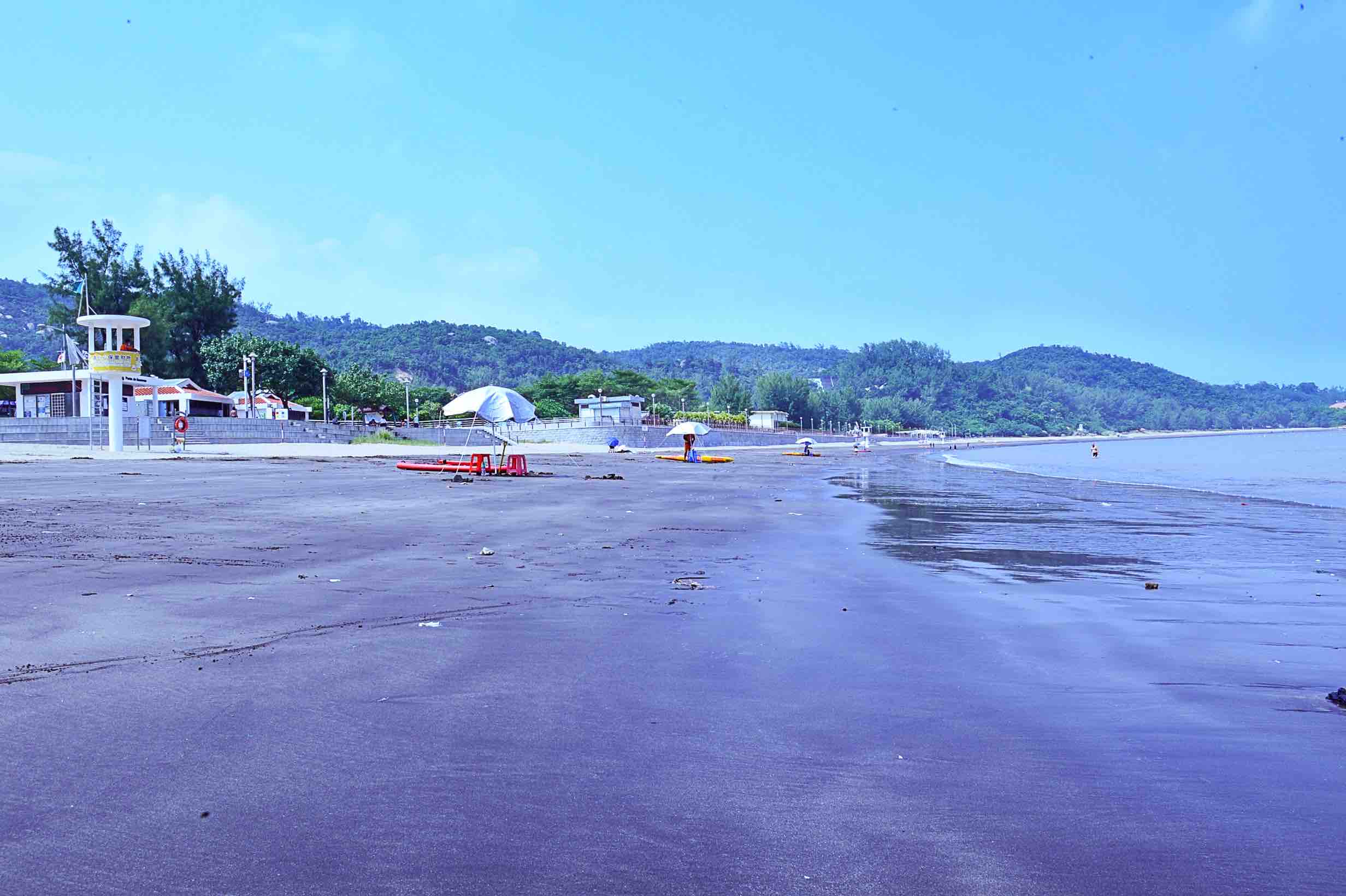
Black Sand Beach
The walk from Hanji Kafei is a 45-minute trek that allows you to journey through the ancient village of Coloane, before following the road along the coast to Black Sand Beach. To get to Our Lady of Sorrow’s Church, we followed a road that took us through local villages and Macao’s industrial areas. We saw an abundance of scrap metal yards and factories juxtaposed against extravagant beach houses.
This hiking route is a perfect way to see old Macao and its ties to Portuguese history while also taking in its industrial underbelly.
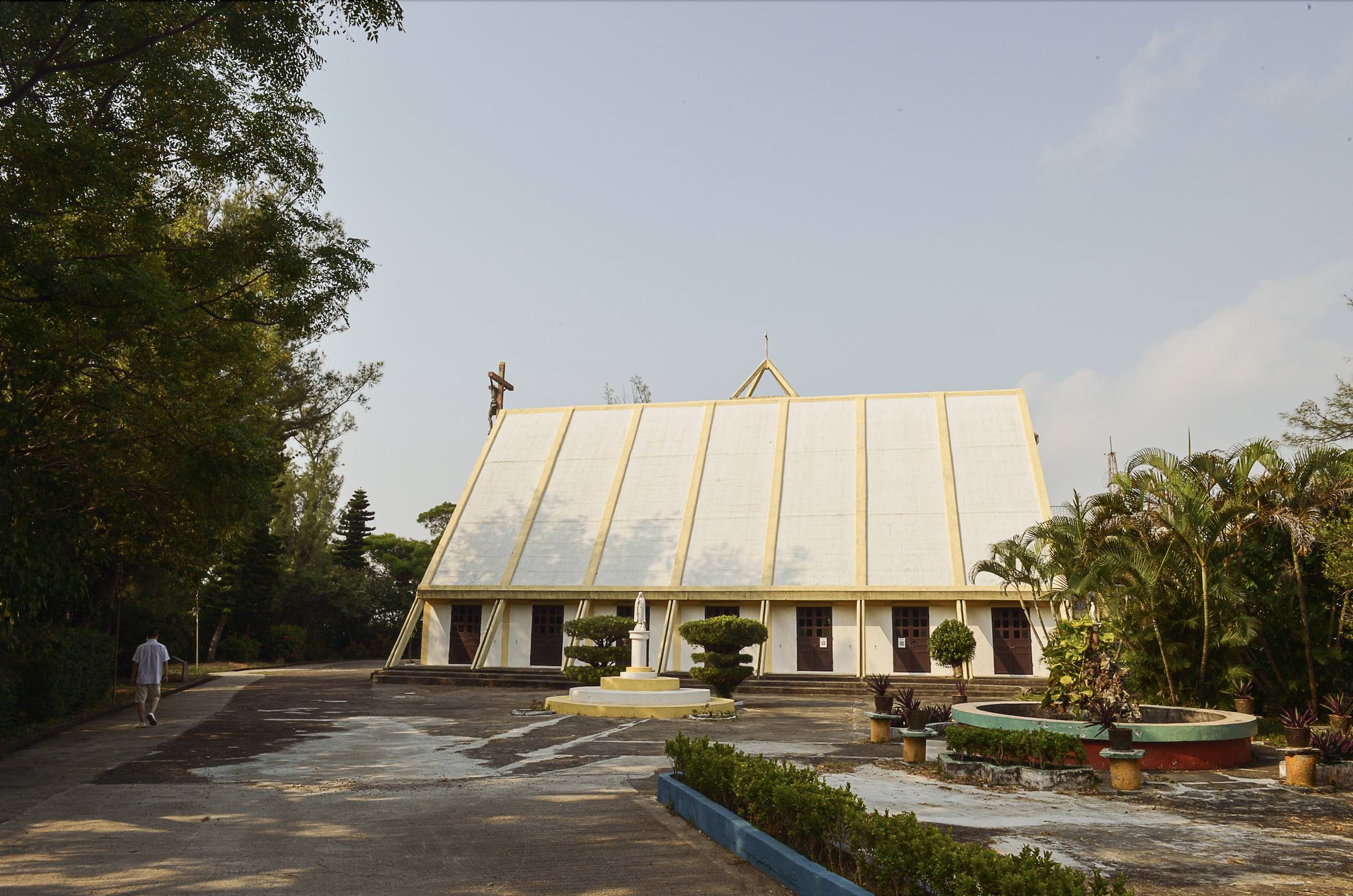
Our Lady of Sorrow's Church
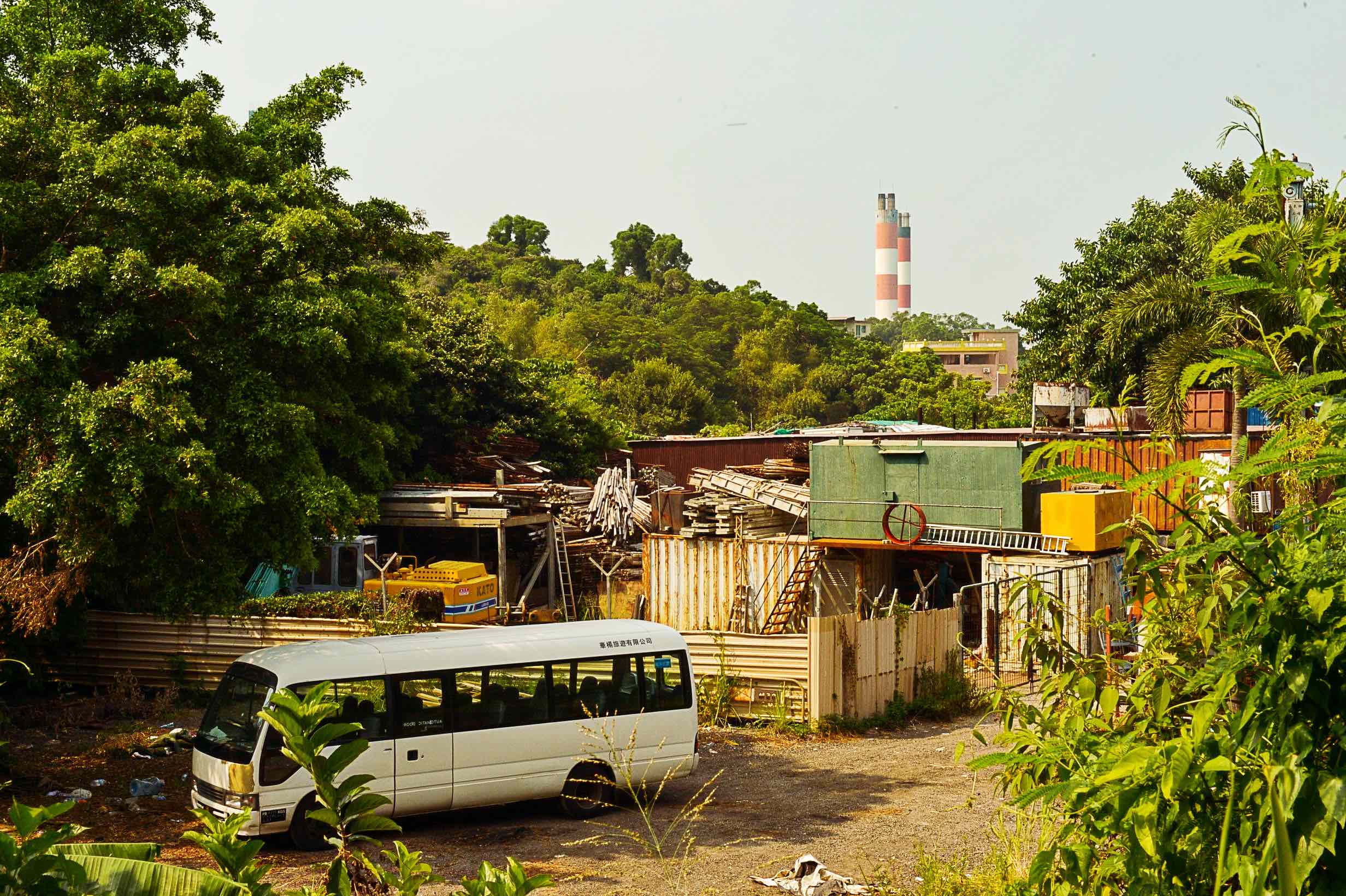
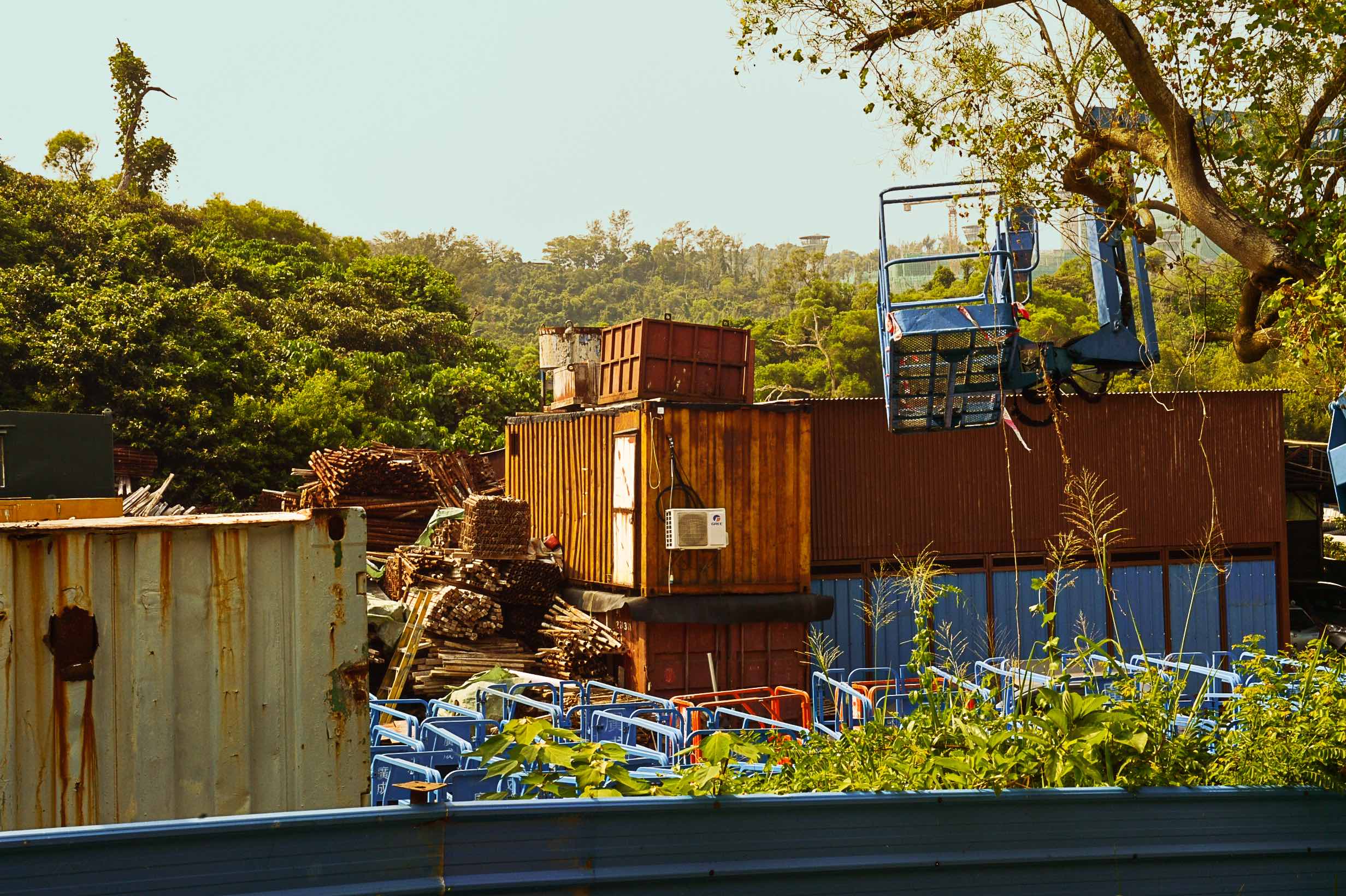
Tourism
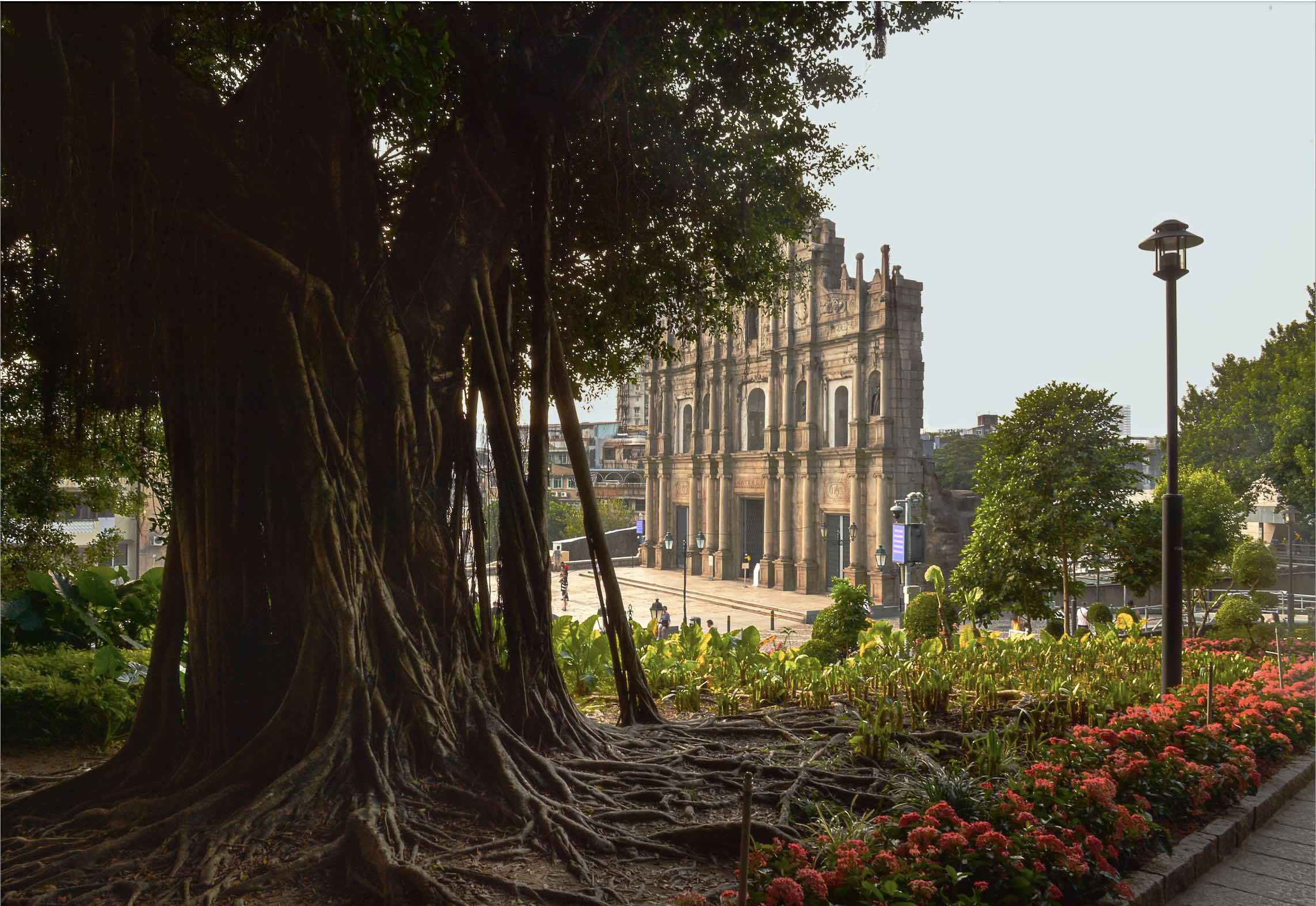
We last traveled to Macao in 2019 when no one had even heard of COVID-19. At that time, it was just a normal weekend but the streets were packed with tourists and you couldn’t move without bumping into someone at St Paul’s Cathedral. Now, there is only a smattering of people posing for selfies at the ancient ruin.
Macao’s casinos were a major pulling power for tourism on the island, previously attracting hordes of tourists from the Chinese mainland. When we visit the casino located on the ground floor of the Venetian Hotel, again the number of tourists we are accustomed to has fallen dramatically.
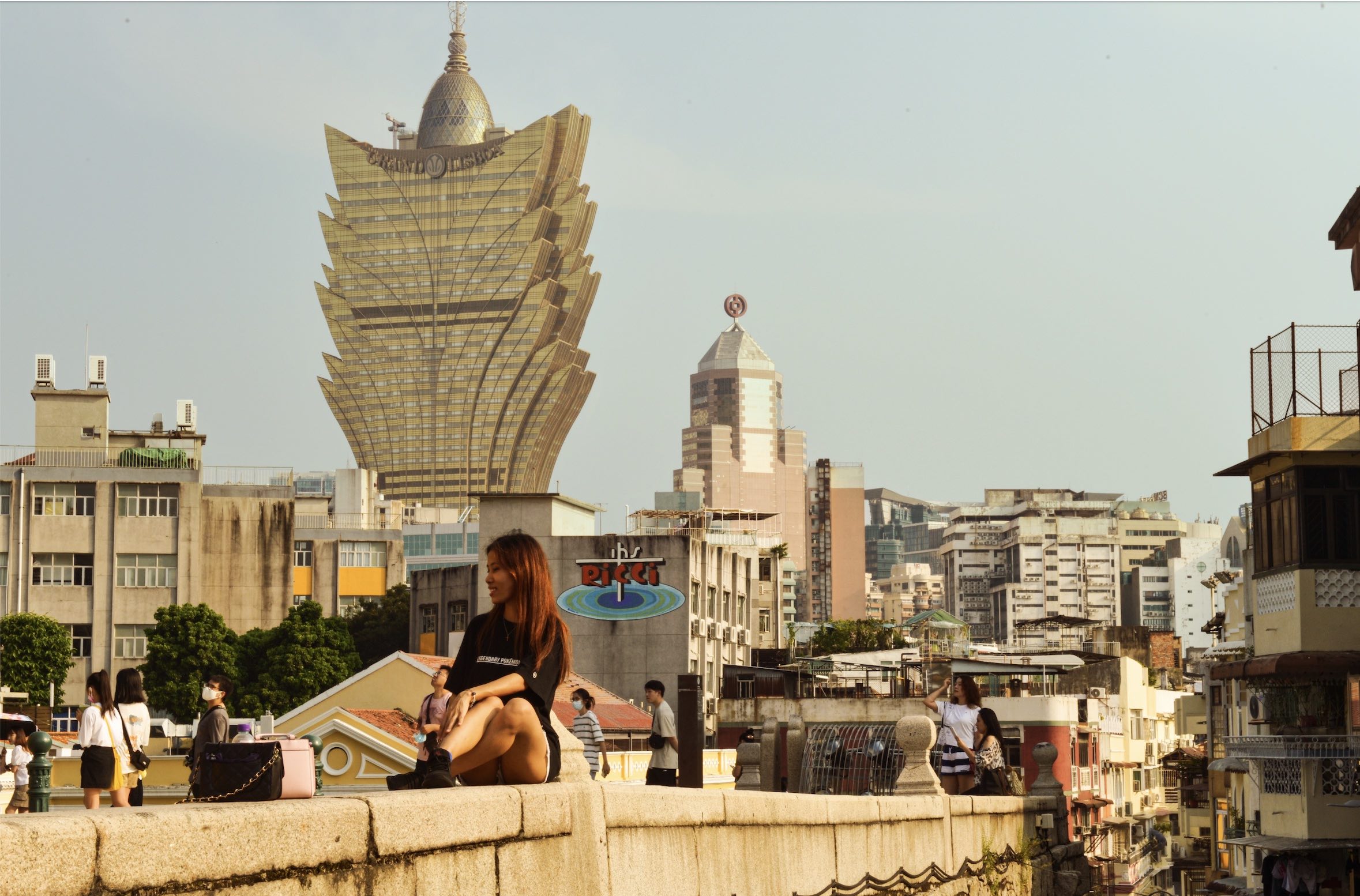
Lines of empty tables run through the casino and the once abuzz slot machines are a ghost town, with one or two lonely ayi robotically pushing their coins into the slot.
Casino revenue dropped significantly following the outbreak of COVID-19, with annual revenue in 2020 at MOP61.05 billion (USD7.5 billion) (down from MOP361.7 billion in 2013). In 2021, annual revenue picked up slightly at MOP87.6 billion (USD10.8 billion).
In July 2022, all casinos were shut in Macao following an outbreak of COVID-19.
In an attempt to recoup lost revenue, hotels in the city, even the most luxurious, have drastically slashed their prices to attract more people from the mainland (one night in the Venetian cost us RMB500) to come, spend money and gamble.
Also, as we mentioned before, beaches around the coast and the city’s hottest tourist attractions were almost empty, allowing us a rare moment of peace and the ability to truly take in their beauty in what was once a bustling city.
With all this in mind, could now be the best time to go to Macao?
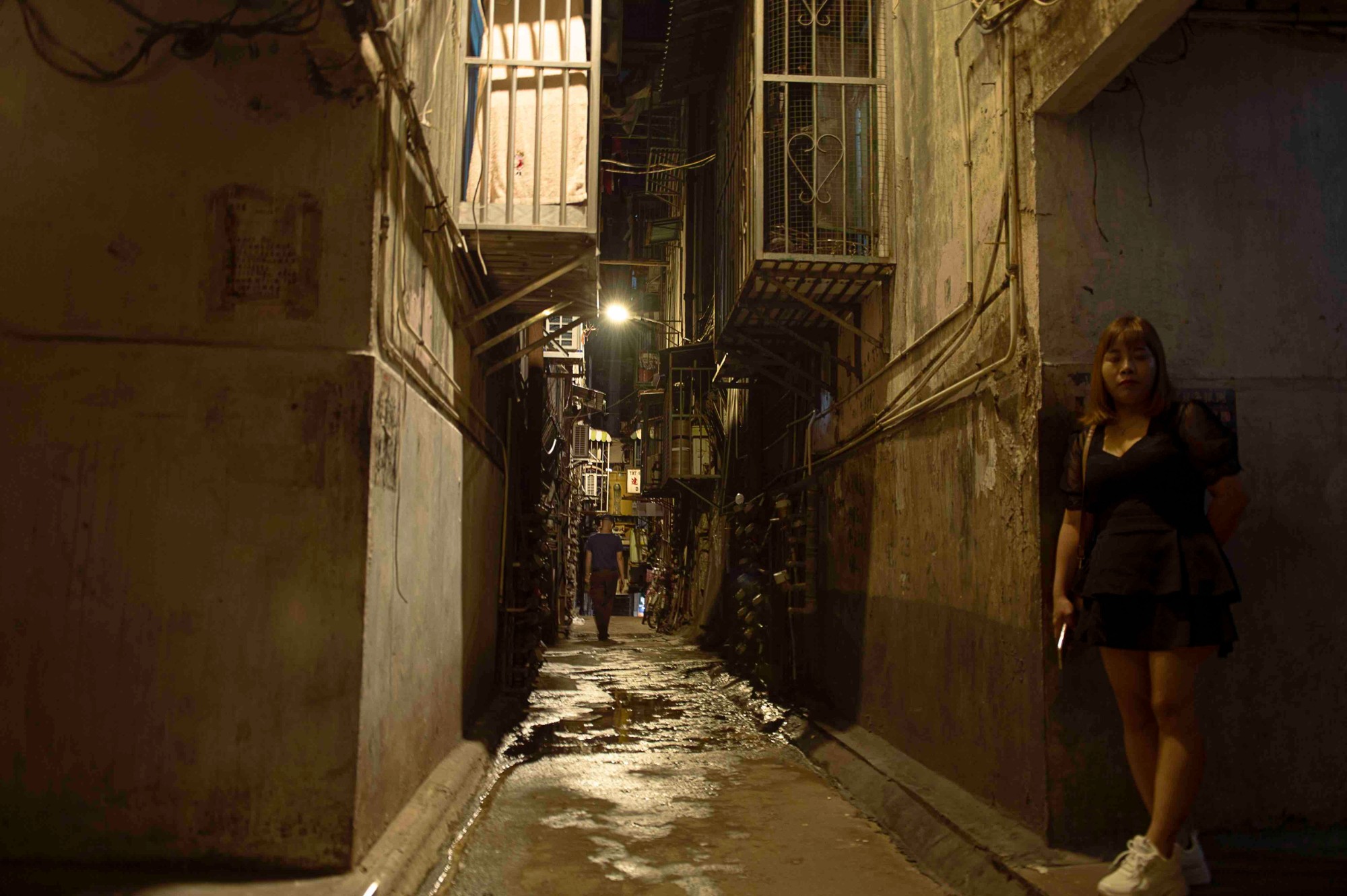
A woman stands outside her apartment in a tight alley between two Macao highrises
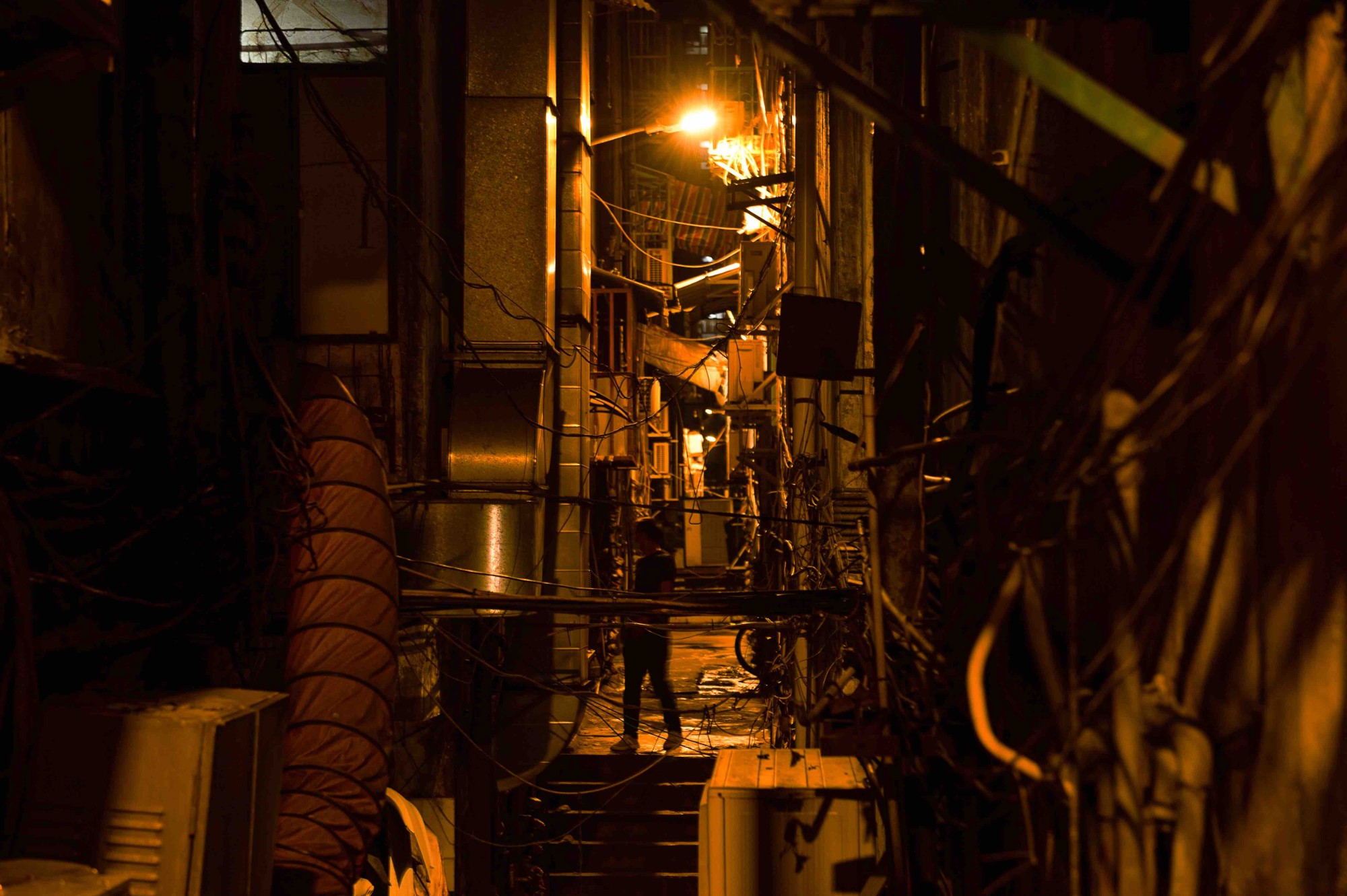
The dark and murky alleyways that line Macao streets
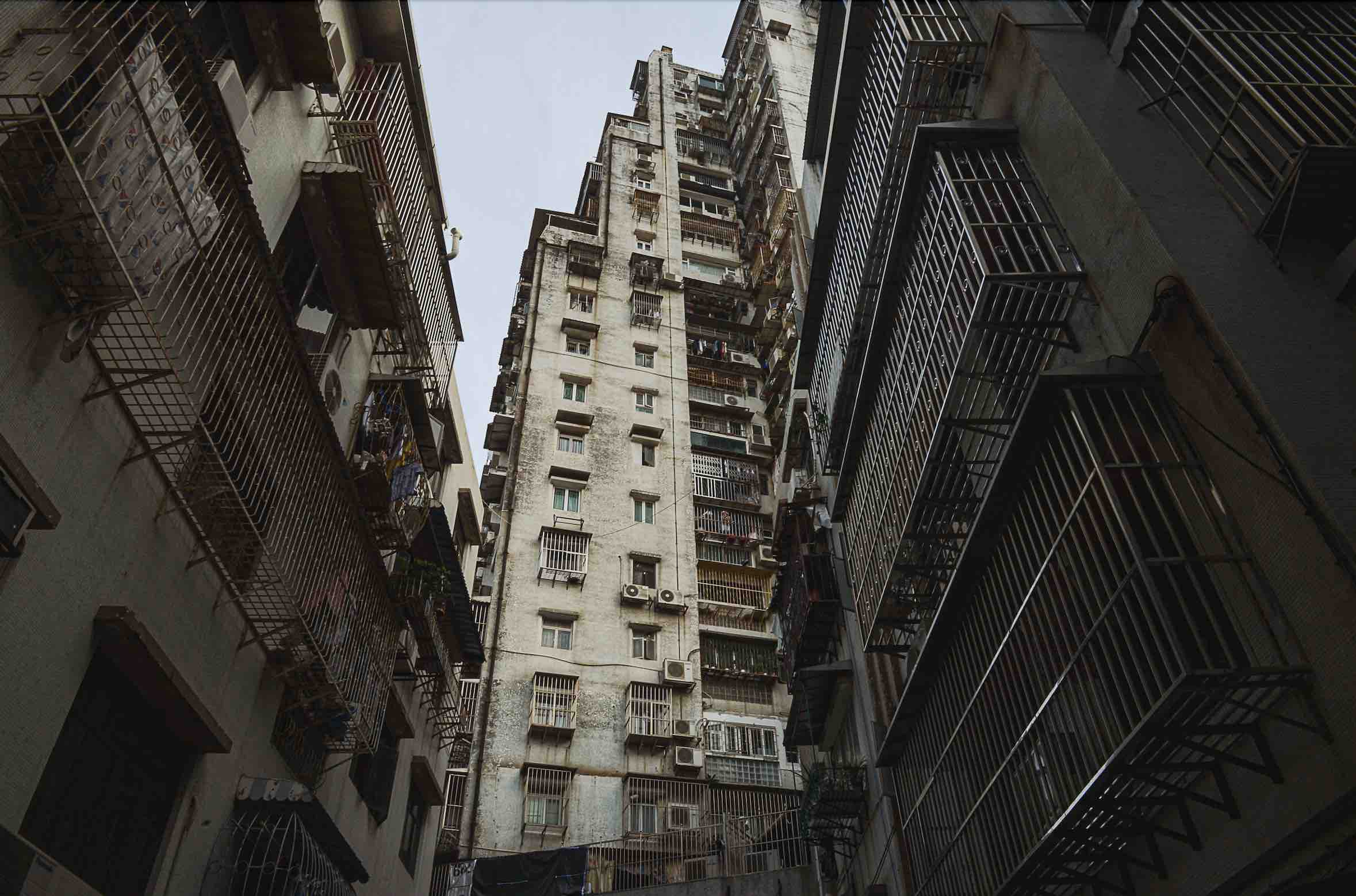
An old highrise looms above the city

A woman rests from the summer sun in the shade outside a buddhist temple

A man pulls out his bike while smoking a cigarette

A family enjoys their dinner in their restaurant after they close for the evening

Three generations of locals wait for the bus
[All images via That's/Lars Hamer]
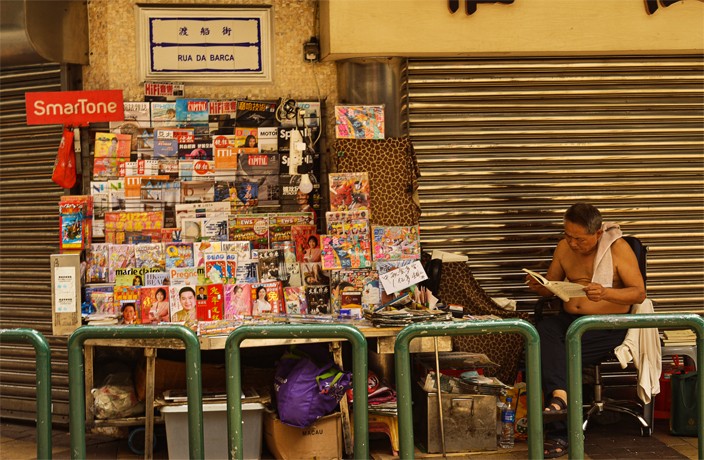






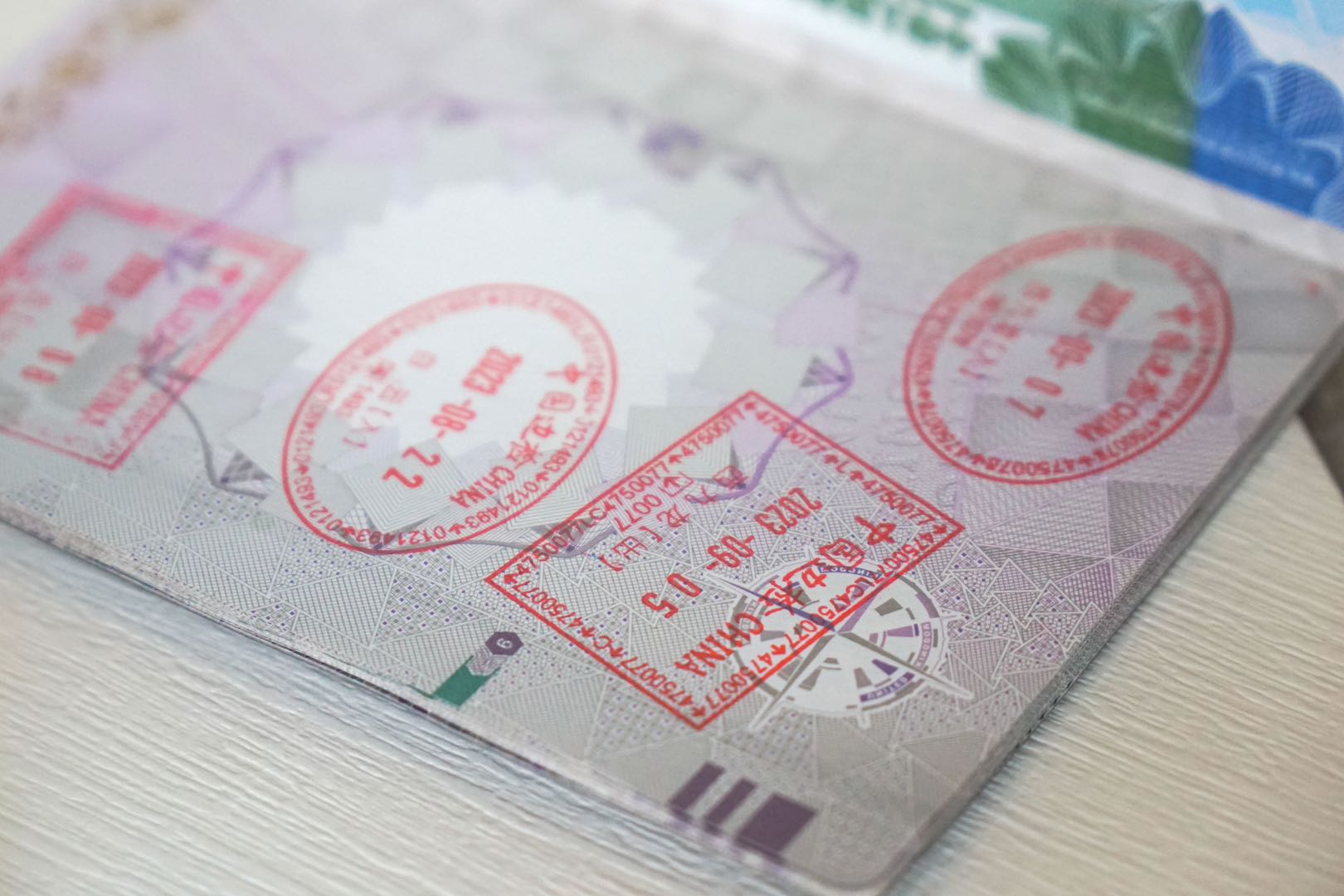
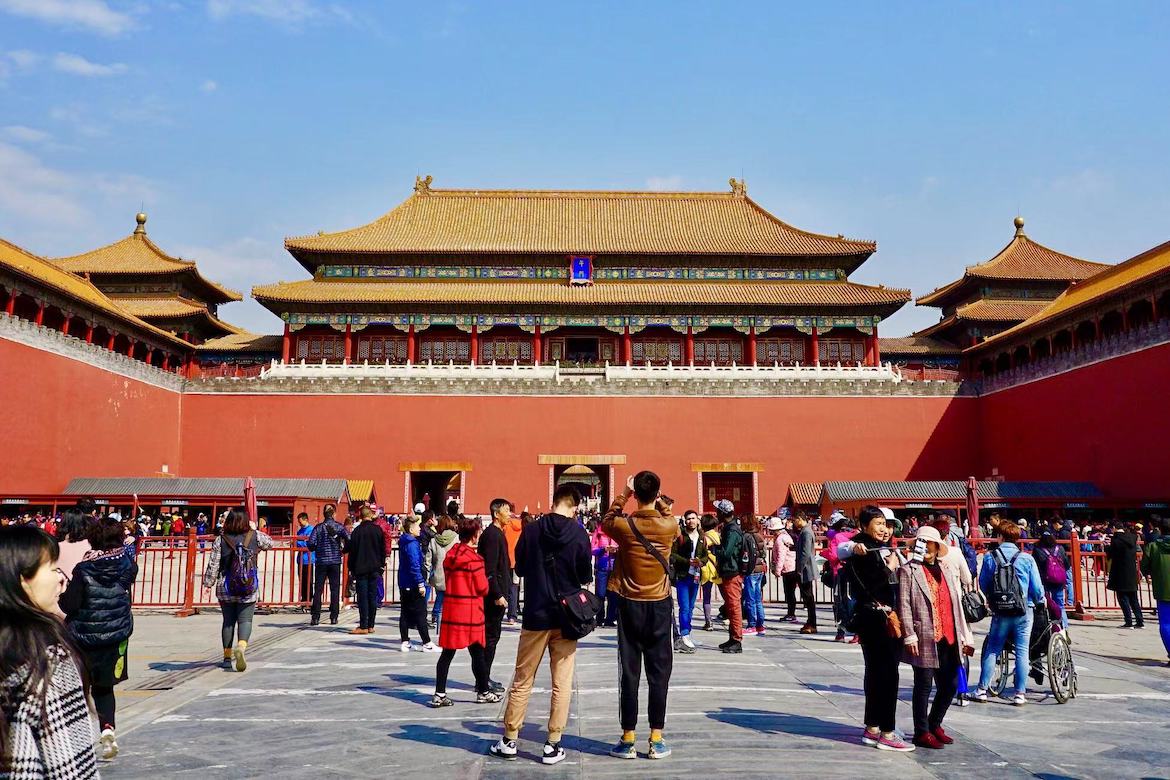














0 User Comments